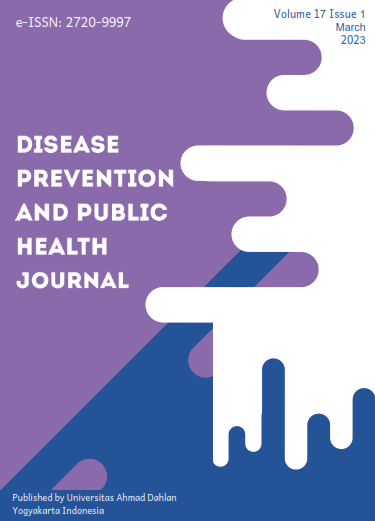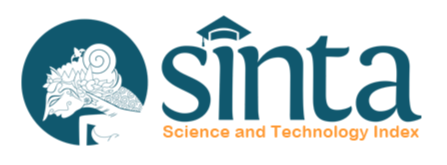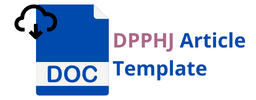Community Personal Hygiene Knowledge and Attitude to Covid-19 Prevention Behavior
DOI:
https://doi.org/10.12928/dpphj.v17i1.7098Keywords:
Covid-19 Prevention, Personal Hygiene, Knowledge, AttitudeAbstract
Background: The rise of Covid-19 cases has become a global issue. The government has issued guidelines for the public to reduce exposure and spread of disease or infection through personal hygiene. The purpose of this study is to ascertain community knowledge and attitudes toward personal hygiene in preventing Covid-19 in Bengkulu City. Method: This research method uses a quantitative approach. This type of research is an observational study with a cross-sectional approach. The sample in this quantitative study was taken using a simple random technique. Based on the calculation of the sample, the minimum sample size is 100 people. Data was collected by distributing questionnaires, univariate and bivariate analyses were performed. Results: The results were there was a significant association between personal hygiene knowledge toward Covid-19 prevention behaviors in Bengkulu City (p<0.05; OR= 2.6; CI 95%= 1.137-5.951). Knowledge is the collection of information about the occurrence and prevention of Covid-19, understood and acquired from the learning process throughout life, in which there are significant associations. In Bengkulu City, there was a significant association between people's attitudes toward personal hygiene and the prevention of Covid-19 (p<0.05; OR= 2.658; CI 95%= 1.184-5.969). Attitude is one of the factors that determine a person's actions in maintaining individual and group good in preventing disease. Conclusion: The results show that personal hygiene knowledge and attitudes are significantly associated with Covid-19 prevention behaviors.
References
WHO W. Wuhan 2019 Novel Coronavirus - 2019-nCoV. Mater Methods. 2020;10(JANUARY):1–5. link: https://doi.org/10.13070/mm.en.10.2867
Kemenkes RI. Buku pedoman RT RW pencegahan COVID. J Chem Inf Model [Internet]. 2020;53(9):1689–99. Doi: https://infeksiemerging.kemkes.go.id/download/BUKU_PEDOMAN__RT_RW_Pencegahan_COVID.pdf
Noreen K, Rubab ZE, Umar M, Rehman R, Baig M, Baig F. Knowledge, Attitudes, and Practices Against the Growing Threat of COVID-19 among Medical Students of Pakistan. PLoS One. 2020 Dec 11;15(12):e0243696. doi: 10.1371/journal.pone.0243696.
Willis DE, Presley J, Williams M, Zaller N, McElfish PA. COVID-19 Vaccine Hesitancy among Youth. Hum Vaccin Immunother. 2021 Dec 2;17(12):5013-5015. doi: 10.1080/21645515.2021.1989923.
Yanti B, Wahyudi E, Wahiduddin W, Novika RGH, Arina YMD, Martani NS, et al. Community Knowledge, Attitudes, and Behavior Towards Social Distancing Policy as Prevention Transmission of Covid-19 in Indonesia. J Adm Kesehat Indones. 2020;8(2):4. doi: https://doi.org/10.20473/jaki.v8i2.2020.4-14
Wati N, Helvia H, Ramon A, Yanuati R, Oktarianita. Pengetahuan Dan Sikap Terhadap Perilaku Pencegahan Covid-19. J Kesmas Asclepius. 2022;4:33–41. doi: https://doi.org/10.53475/jicm.v2i2.35
Hossain MA, Jahid MIK, Amran Hossain KM, Walton LM, Uddin Z, Haque MO, et al. Knowledge Attitudes and fear of COVID-19 during the Rapid Rise Period in Bangladesh. PLoS One [Internet]. 2020;15(9 September):1–13. Doi: http://dx.doi.org/10.1371/journal.pone.0239646
Custodio R, Yuri L, Nakada K. COVID-19 Pandemic: Solid Waste and Environmental Impacts in Brazil Rodrigo. 2020;(January). doi: https://doi.org/10.1016/j.scitotenv.2020.142471
Daryabeigi A, Vaezi A. Emerging Challenges in Urban Waste Management in Tehran, Iran during the COVID-19 Pandemic. 2020;(July). doi: https://doi.org/10.1016/j.resconrec.2020.105051
Abdel Wahed WY, Hefzy EM, Ahmed MI, Hamed NS. Assessment of Knowledge, Attitudes, and Perception of Health Care Workers Regarding COVID-19, A Cross-Sectional Study from Egypt. J Community Health [Internet]. 2020;45(6):1242–51. Doi: https://doi.org/10.1007/s10900-020-00882-0
Singh Gambhir R, Singh Dhaliwal J, Aggarwal A, Anand S, Anand V, Kaur Bhangu A. Covid-19: A Survey on Knowledge, Awareness and Hygiene Practices among Dental Health Professionals in an Indian Scenario. Rocz Panstw Zakl Hig. 2020;71(2):223-229. doi: 10.32394/rpzh.2020.0115.
Almoslem MM, Alshehri TA, Althumairi AA, Aljassim MT, Hassan ME, Berekaa MM. Handwashing Knowledge, Attitudes, and Practices among Students in Eastern Province Schools, Saudi Arabia. J Environ Public Health. 2021 Sep 21;2021:6638443. doi: 10.1155/2021/6638443.
Osaili TM, Al-Nabulsi AA, Taybeh AO. Food Safety Knowledge, Attitudes, and Practices Among Jordan Universities Students During the COVID-19 Pandemic. Front Public Health. 2021 Aug 30;9:729816. doi: 10.3389/fpubh.2021.729816.
Hu Y, Zhang G, Li Z, Yang J, Mo L, Zhang X, Xiong L, Wu W, Mao C, Yang X. [Knowledge, attitudes, and practices related to COVID-19 pandemic among residents in Hubei and Henan Provinces]. Nan Fang Yi Ke Da Xue Xue Bao. 2020 May 30;40(5):733-740. Chinese. doi: 10.12122/j.issn.1673-4254.2020.05.20.
Amir RS, Wati N, Ramon A, Yanuarti R, Farah F, Zahra A. Knowledge of Public Environmental Health with Covid-19 Prevention Behavior at the Jalan Gedang Public Health Center Bengkulu City. Dis Prev Pub Health J 2022;16(2):110–7. doi: https://doi.org/10.12928/dpphj.v16i2.4957
Nienhaus A, Hod R. COVID-19 among Health Workers in Germany and Malaysia. Int J Environ Res Public Health. 2020;17(13):1–10. doi: https://doi.org/10.3390/ijerph17134881
Olaimat AN, Aolymat I, Elsahoryi N, Shahbaz HM, Holley RA. Attitudes, Anxiety, and Behavioral Practices Regarding COVID-19 among University Students in Jordan: A Cross-Sectional Study. Am J Trop Med Hyg. 2020 Sep;103(3):1177-1183. doi: 10.4269/ajtmh.20-0418.
Habib MA, Dayyab FM, Iliyasu G, Habib AG. Knowledge, Attitude And Practice Survey Of COVID-19 Pandemic in Northern Nigeria. PLoS One. 2021 Jan 14;16(1):e0245176. doi: 10.1371/journal.pone.0245176.
Siddiquea BN, Shetty A, Bhattacharya O, Afroz A, Billah B. Global Epidemiology of COVID-19 Knowledge, Attitude and Practice: A Systematic Review and Meta-Analysis. BMJ Open. 2021 Sep 14;11(9):e051447. doi: 10.1136/bmjopen-2021-051447.
Al-Hanawi MK, Angawi K, Alshareef N, Qattan AMN, Helmy HZ, Abudawood Y, Alqurashi M, Kattan WM, Kadasah NA, Chirwa GC, Alsharqi O. Knowledge, Attitude and Practice Toward COVID-19 Among the Public in the Kingdom of Saudi Arabia: A Cross-Sectional Study. Front Public Health. 2020 May 27;8:217. doi: 10.3389/fpubh.2020.00217.
Paul A, Sikdar D, Hossain MM, Amin MR, Deeba F, Mahanta J, et al. Knowledge, Attitudes, and Practices toward the Novel Coronavirus among Bangladeshis: Implications for Mitigation Measures. PLoS One [Internet]. 2020;15(9 September 2020):1–18. Doi: http://dx.doi.org/10.1371/journal.pone.0238492
Yıldırım M, Güler A. COVID-19 Severity, Self-Efficacy, Knowledge, Preventive Behaviors, and Mental Health in Turkey. Death Stud [Internet]. 2020;0(0):1–8. Doi: https://doi.org/10.1080/07481187.2020.1793434
Khasawneh AI, Humeidan AA, Alsulaiman JW, Bloukh S, Ramadan M, Al-Shatanawi TN, et al. Medical Students and COVID-19: Knowledge, Attitudes, and Precautionary Measures. A Descriptive Study from Jordan. Front Public Heal. 2020; doi: https://doi.org/10.3389/fpubh.2020.00253
Azlan AA, Hamzah MR, Sern TJ, Ayub SH, Mohamad E. Public Knowledge, Attitudes and Practices towards COVID-19: A Cross-sectional Study in Malaysia. PLoS One [Internet]. 2020;15(5):1–15. Doi: http://dx.doi.org/10.1371/journal.pone.0233668
Hong J, Xu XW, Yang J, Zheng J, Dai SM, Zhou J, Zhang QM, Ruan Y, Ling CQ. Knowledge about, Attitude and Acceptance Towards, and Predictors of Intention to Receive the COVID-19 Vaccine Among Cancer Patients in Eastern China: A Cross-sectional Survey. J Integr Med. 2022 Jan;20(1):34-44. doi: 10.1016/j.joim.2021.10.004.
Nooh HZ, Alshammary RH, Alenezy JM, Alrowaili NH, Alsharari AJ, Alenzi NM, et al. Public Awareness of Coronavirus in Al-Jouf region, Saudi Arabia. J Public Heal. 2021;29(5):1107–14. doi: https://doi.org/10.1007/s10389-020-01209-y
Elhadi M, Alsoufi A, Alhadi A, Hmeida A, Alshareea E, Dokali M, Abodabos S, Alsadiq O, Abdelkabir M, Ashini A, Shaban A, Mohammed S, Alghudban N, Bureziza E, Najah Q, Abdulrahman K, Mshareb N, Derwish K, Shnfier N, Burkan R, Al-Azomi M, Hamdan A, Algathafi K, Abdulwahed E, Alheerish K, Lindi N, Anaiba M, Elbarouni A, Alsharif M, Alhaddad K, Alwhishi E, Aboughuffah M, Aljadidi W, Jaafari A, Khaled A, Zaid A, Msherghi A. Knowledge, Attitude, and Acceptance of Healthcare Workers and te Public Regarding the COVID-19 Vaccine: A Cross-Sectional Study. BMC Public Health. 2021 May 20;21(1):955. doi: 10.1186/s12889-021-10987-3.
Perna S, Bahar K, Alalwan TA, Zahid MN, Gasparri C, Peroni G, Faragli A, La Porta E, Ali Redha A, Janahi EM, Ibrahim S, Rondanelli M. COVID-19 Knowledge, Attitudes, and Preventive Measures of University Students in Bahrain. Ann Ig. 2022 Jul-Aug;34(4):398-409. doi: 10.7416/ai.2022.2507.
Nwagbara UI, Osual EC, Chireshe R, Bolarinwa OA, Saeed BQ, Khuzwayo N, Hlongwana KW. Knowledge, Attitude, Perception, and Preventative Practices Towards COVID-19 in Sub-Saharan Africa: A Scoping Review. PLoS One. 2021 Apr 19;16(4):e0249853. doi: 10.1371/journal.pone.0249853.
Tonini D, Albizzati PF, Astrup TF. Environmental Impacts of Food Waste: Learnings and Challenges from a Case Study on UK. Waste Manag [Internet]. 2018;76:744–66. Doi: https://doi.org/10.1016/j.wasman.2018.03.032
Downloads
Published
Issue
Section
License
Copyright (c) 2023 Universitas Ahmad Dahlan

This work is licensed under a Creative Commons Attribution-ShareAlike 4.0 International License.
Authors transfer the copyright and grant the Disease Prevention and Public Health Journal right of first publication with the work simultaneously licensed under a Creative Commons Attribution License (CC BY-SA 4.0) that allows others to share (copy and redistribute the material in any medium or format) and adapt (remix, transform, and build upon the material) the work for any purpose, even commercially with an acknowledgement of the work's authorship and initial publication in Disease Prevention and Public Health Journal. Authors are able to enter into separate, additional contractual arrangements for the non-exclusive distribution of the journal's published version of the work (e.g., post it to an institutional repository or publish it in a book), with an acknowledgement of its initial publication in Disease Prevention and Public Health Journal. Authors are permitted and encouraged to post their work online (e.g., in institutional repositories or on their website) prior to and during the submission process, as it can lead to productive exchanges, as well as earlier and greater citation of published work (See The Effect of Open Access).

This work is licensed under a Creative Commons Attribution-ShareAlike 4.0 International License.







